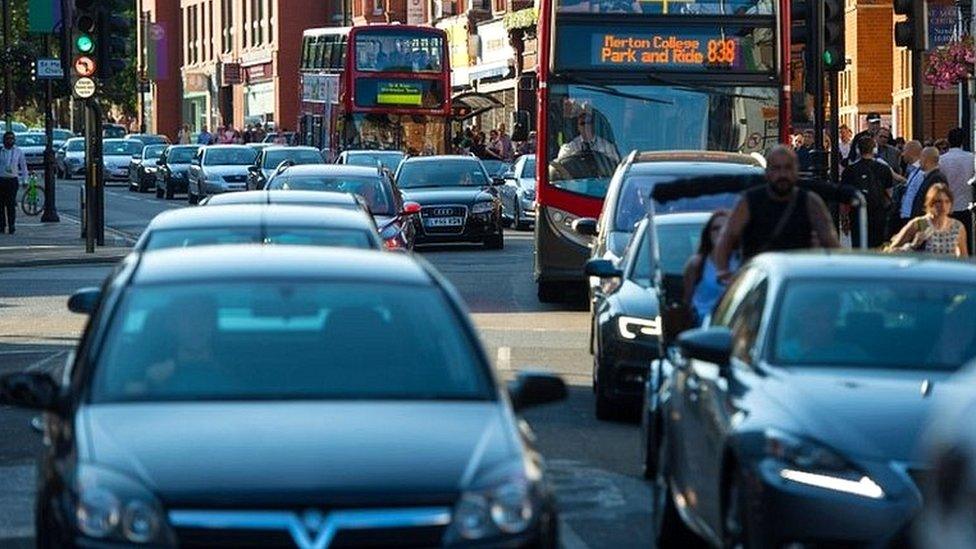ULEZ: The most radical plan you've never heard of
- Published
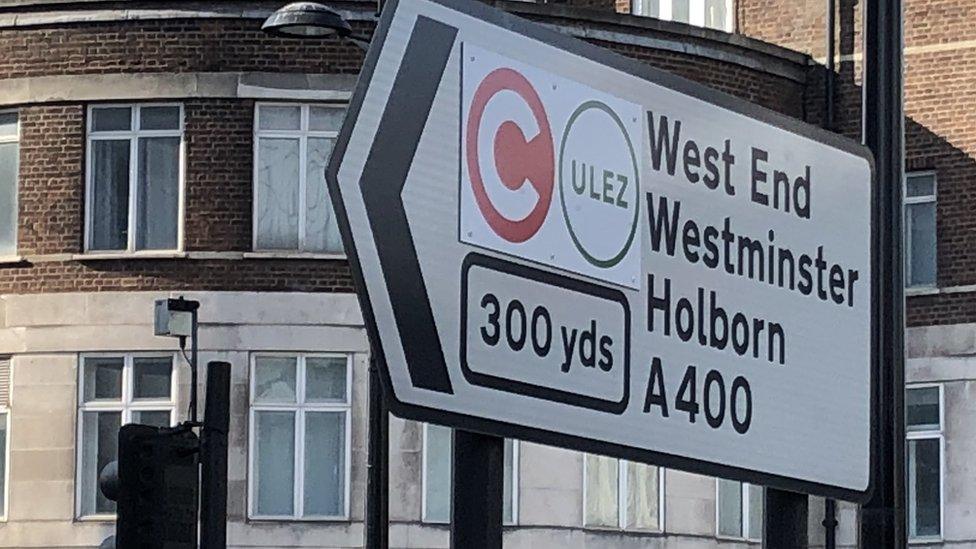
The ultra low emission zone (ULEZ) will initially apply to the current congestion charge zone
You might not know what uLEZ stands for - but you will.
It stands for Ultra Low Emission Zone. , external
And make no mistake, it is one of the most radical anti-pollution policies in the world.
This policy has been planned for years - I know I've covered it many times - but only now are many realising it could affect them.
It is starting small, arguably, but certainly by 2021 it could be significant if the planned expansion happens.
It is part of a 'polluter pays' ethos - the broad theory that older more polluting vehicles will have to pay to enter the congestion charging zone.

It will cost £12.50 a day to enter if your vehicle is not compliant, and that is on top of the congestion charge., external
If you're not compliant you will get a fine of £160, though a first offence may only result in a warning letter.
Beginning on 8 April, it will run 24 hours a day and for 365 days a year.
Broadly these are the non-compliant vehicles:
motorbikes that do not meet Euro 3 standards (pre-2007 vehicles)
petrol cars and vans that do not meet Euro 4 standards (vehicles pre-2006)
diesel cars and vans that do not meet Euro 6 standards (vehicles pre-2015)
Buses, coaches and lorries will need to meet or exceed the Euro VI standard or pay £100 a day
The best thing to do is check if your vehicle is compliant on the TfL website, external as there are some anomalies.
The uLEZ was actually started under the previous mayor Boris Johnson - the current incumbent , Sadiq Khan, has expanded it and brought the date forward.
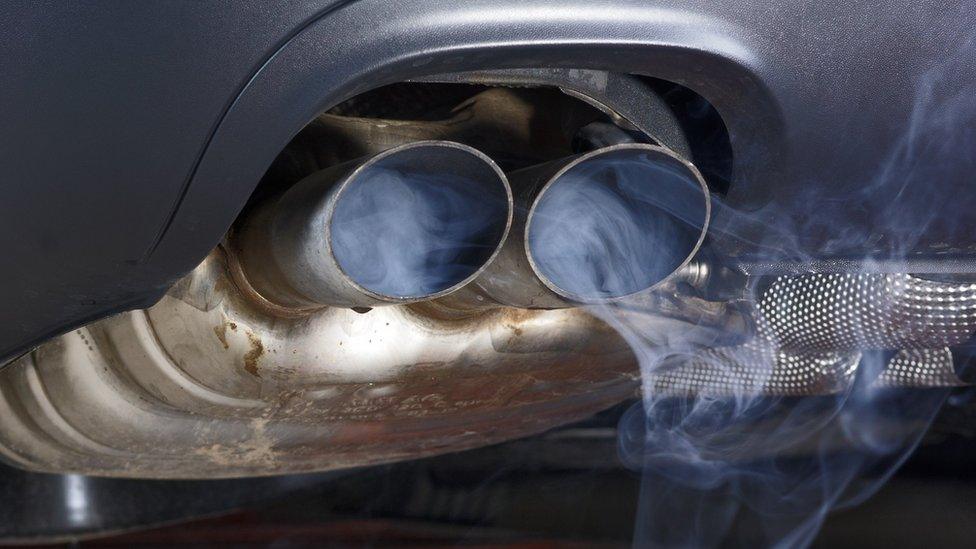
Only vehicles that meet tight emission standards - including electric and hybrid cars, bikes or e-bikes - will be allowed in the new zones
Transport for London's initial estimates show that 40,000 cars a day will affected along with 19,000 vans, 2,000 HGVs and 700 coaches.
Although the number might be lower as people switch cars.
There has been opposition from businesses who think London isn't ready. They want a grace period on the fines.
In 2021 it will expand to include the area within the North Circular and the South Circular.
There is bound to be more opposition to the expansion of the uLEZ.
Conservatives on the London Assembly think the wider zone will not make any difference to pollution levels and will punish poorer households.
The suburbs will be affected.
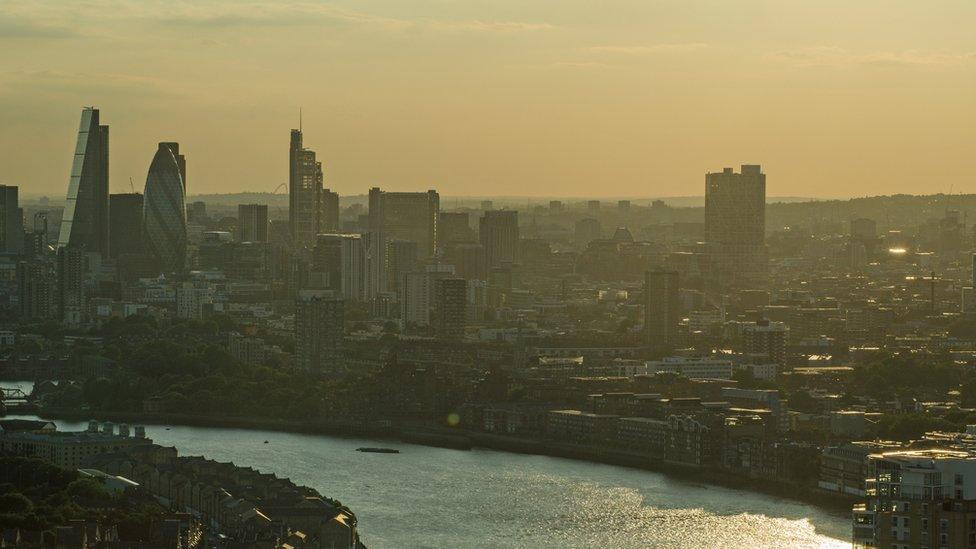
The plans are part of Sadiq Khan's latest bid to tackle London's air pollution problem
But London's poor air quality shortens the lives of thousands of people every year. The Mayor has called it a public health emergency.
He is trying to make cleaning up London's air the main policy for his first term.
What the scheme is trying to do is affect behaviour change and get people to drive cleaner cars.
Other cities like Paris are trying all out bans on diesels by 2024.
London has chosen another route and by 2021 should have the largest emission charging zone on the planet.
- Published4 April 2017
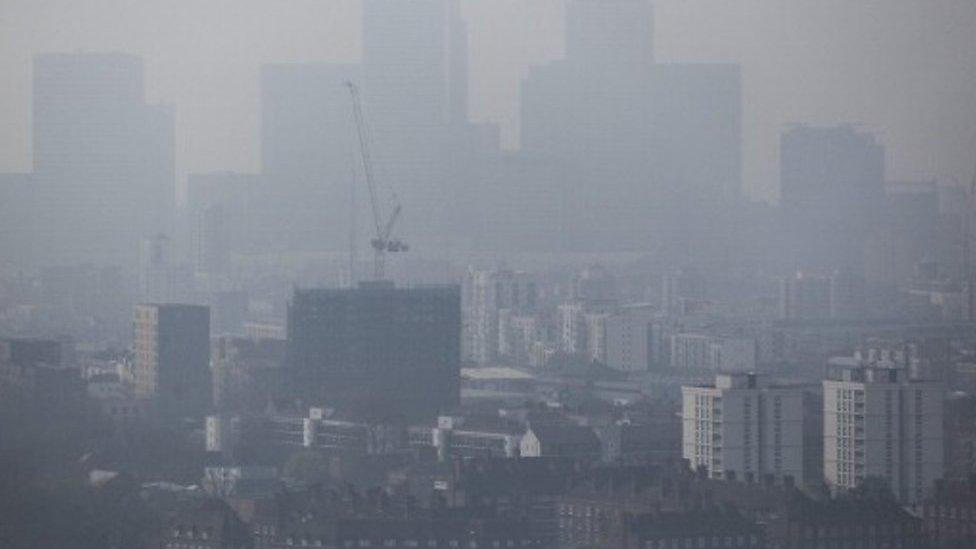
- Published3 September 2018
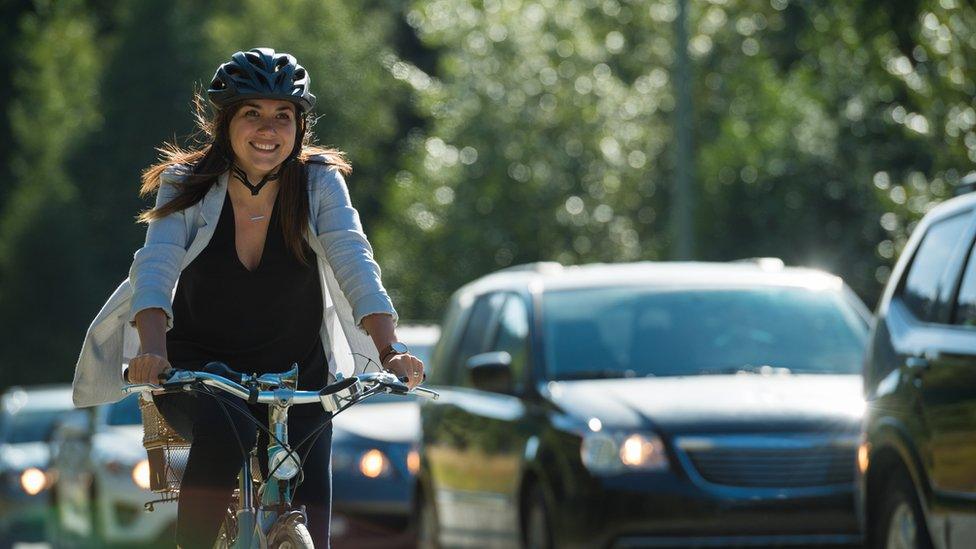
- Published30 November 2017

- Published4 April 2017
